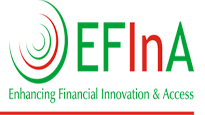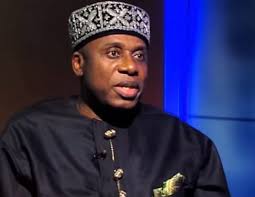Enhancing Financial Innovation & Access (EFInA), a financial sector development organization that promotes financial inclusion in Nigeria, has reported that 36.8% of the adult population in the country remained financially excluded despite efforts by the fiscal and monetary authorities to bring adults into the financial services net.
In its latest ‘2018 EFINA Access to Financial Services survey published on Tuesday, the organisation noted that the excluded translated to a population of 36.6 million adult Nigerians, with 44.1% male and 55.9% female.
The survey also showed that Nigeria had a chance to achieve the 20% exclusion rate target for adults by 2020.
EFInA reported further that the survey findings indicated that currently the country had a total adult population of 99.6 million, with 39.8% as the banked population which translates to 39.7 million while the unbanked population is now 60.1 million with 71.3% of mobile phone users, that are adult among the excluded.
A further analysis of the survey showed that 63.3% of the population were accessing financial services with 38.7% or 39.5 million in the banked category while about three million Nigerians have financial services provided by microfinance banks (MFBs).
The 2018 Access to Financial Services survey reflected that the formal labour was not absorbing enough Nigerians just as reduction in formal employment lead to reduced disposable income leading to reduced savings.
It also observed that adults resort to starting small businesses (driven by the agric sector) to survive; day to day expenses is the most important financial need while planning for unexpected shocks and planning for long term goals are second and third priorities respectively; and that banked population went up by 1.4% which was driven by transaction products.
Other findings of the survey are that a number of adults relying on informal mechanism only increase significantly-as more adults move into formal employment; payments are mostly cash based , driven by the size of the informal sector and that digital payments increased from 12% in 2016 to 16% in 2018, the usage is driven by the deepening of financial inclusion. Mobile Money usage is driven by the banked population.
EFInA identified barriers to financial inclusion remain lack of products/services awareness and knowledge, institutional exclusion and affordability.
To improve the financial inclusion level, the survey recommended sustained measure of financial inclusion and usage aligned with the revised National Financial Inclusion Strategy (NFIS); increased financial intermediation for small businesses where majority of adults are employed, where they earn money.
Other recommendations include, the need for monetary authorities and operators to target those adults using informal only-introducing mobile money and agent services to 14.5 million adults that rely exclusively on informal mechanism; application of segmentation methods to better target key identified groups (women, youth, adults residing in rural areas and adults residing in the North West and North East regions); and data integration across surveys, supply side data and regulatory data to improve quality of analytics and market intelligence.
A major trend of the survey was the fact that Nigeria recorded a 4.8% increase in the financially inclusion from the 2016 survey.
Commenting on the survey findings, EFInA’s Chief Executive Officer, Mr. Esaie Diei, assured stakeholders that the organization would continue to intensify its efforts to drive the advocacy on financial inclusion in the country.




